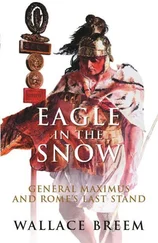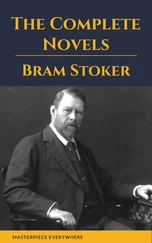“Yes, I am the king in my father’s place.”
“What can I do for you that I would not do for your father?”
“I have come to ask for the return of my sister.”
“She is not for sale.”
He flinched at the implication that she was now a slave.
“What bargain then would you accept for her return?”
“The dispersal of all the men in your camp.”
“They will only disperse this side of the river.”
I said, “The day that you land on this shore you will look upon your sister, dying.”
“So I was told. You mean it then?”
“What is Rando’s daughter to me? I am Maximus.”
He bared his teeth. “For that some men would call you—butcher.” He smiled with an effort. “But I come in peace. May I see my sister?”
“No. But you have my assurance that she is alive and well.”
He said, passionately, “You are a man who cares nothing for the feelings of others.”
I said, “So men have told me. I care. But my people are not your people.”
He hesitated. “Will you tell my sister I came? Will you give her this?” He held out a small silver brooch, such as girls like to wear. Judging from the workmanship it had come originally from the east. “I will do that,” I said.
He nodded. “Thank you.” He turned to go back to the boat. I took a step forward, unthinking. He swung round towards me: his hand flashed into his belt with the speed of a striking cat. With the knife upheld to throw he stopped and stood motionless as I pricked him beneath the chin with the point of my sword.
I said, “I wondered why you came. A man who loves his sister would have come weeks ago. I wondered, too, why you gave the brooch into my sword hand. Did you think to catch me with such an old trick? I learned that one from the Picts on the Northern Wall when you were—nothing.” I pricked him and his back arched and his chin went up as he tried to avoid the point. Blood showed on the blade.
He licked his dry lips. He did not speak.
I said, “I could kill you for that. It would be my right. But—butcher as I am—I will not. Your father would not have been so foolish. Go back to your people, boy, and take your shame and your treachery with you. So long as you remain king I have no need to fear. Who would worry about such a people, led by such a king?” I pushed with the blade and he overbalanced and fell back into the water. I bent down and picked up the brooch, lying between my feet. He swam, splashing frantically, towards the boat, and the men hauled him in, all dripping. They were trying hard not to laugh.
Aquila said, “You should have killed him.”
“Perhaps. This tale will be all round their camp by nightfall. They may do it for me. It will save a lot of trouble.”
I wrote to Stilicho again, a long letter, in which I told him all that had happened, and sent it off by the government post; but I do not know if he ever received it, for I had no reply.
The colours of autumn had gone and the trees stood bare and black, stripped of their leaves which, at first, rustled underfoot and then, eventually, rotted into the wet ground. The ploughed fields lay bare for the winter sowing and the cultivated strips around the villages were nothing but brown lumps of damp earth, waiting silently for the renewal of life in the distant spring. Sheep and cattle had been driven down from the hills, the older beasts slaughtered and the meat dried and salted down and put into barrels to last out the winter. On the farms and by the villages the peasants were burning back the scrub and digging out the roots and stumps of trees that remained, in an effort to clear more land for cultivation next year. Soon the winter wheat would be sown, and the pigeons that crowded the beech trees behind the town, and which had grown fat in the early autumn, would be hunted down to provide fresh meat for the pot.
Julius Optatus and his staff had been busy buying sheepskins off the farmers to make into winter coats for the officers, and a supply of new cloaks and breeches had arrived from Treverorum. Planks of wood were laid down along the camp paths to provide a firm walk above the mud; fatigue parties went out each dawn to collect firewood which they brought back at dusk, loaded onto a string of patient ponies. Cracks in the huts, where the wood had warped in the summer sun, were sealed up, and curtains of dried skins hung inside the doors of the sleeping quarters to give added warmth. To save unnecessary work I ordered that two days’ rations of corn and oil, should be issued at a time; while wine or vinegar, pork or veal, should be issued alternatively to provide a change of diet. In addition, stocks of salted meat and hard biscuits were built up in the camp by the road, and at Bingium also. If the worst happened, and we were compelled to withdraw, I wanted to make certain that the troops would find sufficient supplies along my proposed line of retreat. Quintus brought the cavalry horses into the stables in the old camp and, like the quartermaster with his food, established depots of spare horses at Bingium, and at the signal posts along the road.
“We cannot level the odds any more than we have done,” I said bluntly. “But we can make sure that no one lacks a horse or a spear at the right moment.”
“We have done everything I can think of,” he said. “Even down to spare bridles and reins. Oh, Maximus, we should have had more cavalry.” He was thinking still, I knew, of the battle on the east bank.
“We have been into all that before, a hundred times,” I said calmly. “Look at the trouble we had raising the cavalry in the first instance. And look at the trouble, too, you had keeping your men mounted in Italia. It was always the same. There were never enough horses to go round. Besides, it has been a garrison job on this river. As it is we have had over two thousand horses eating their heads off for the last year.”
“I know,” he said. “It is always the same; not enough horses, not enough men; not enough money to buy them or pay for them.” He paused, and in the silence I could hear the wind booming down the valley, as it had done every day for the past week.
“Let us hope,” he said, “that it does not shift to the east.”
On the advice of Gallus I dispersed the fleet. Four galleys were kept upstream of Moguntiacum, and one each at Bingium and Confluentes. I did not believe that, however desperate they might be, the tribes would try to cross the river by boat or on rafts, but I would leave nothing to chance except the weather. That alone I could not control.
In the middle of the month I received a visit from Goar. He came in, splashing raindrops from his cloak, his red beard dripping onto my polished table. I gave him hot wine and asked for his news. He drank the wine before answering, wiped his hand across the edge of his cloak and said grimly, “King Guntiarus has betrayed you. He is sending them food. He has been told—or believes—that his son is dead. Perhaps he does not believe—I do not know—but he is doing it all the same.”
“How long has this been going on?”
“I do not know—ten days or a fortnight. Perhaps longer.” He paused. He looked at me. He said, “Is the boy dead?”
“No. You can see him if you wish.”
Quintus said, “He is well looked after. He speaks Latin better than his father now. Maximus, he has called your bluff.”
“I do not make threats I do not carry out.”
Goar said, “There is little point in killing the boy now. Give him to me instead.”
“Why?”
“Guntiarus does not hate the Romans as he hates the Alans. If he knows I have the boy, he may stop sending food. He will certainly stop attacking my men.”
“So?” I raised my head at that.
“Oh, yes. We have been fighting skirmishes the past week.”
Читать дальше












